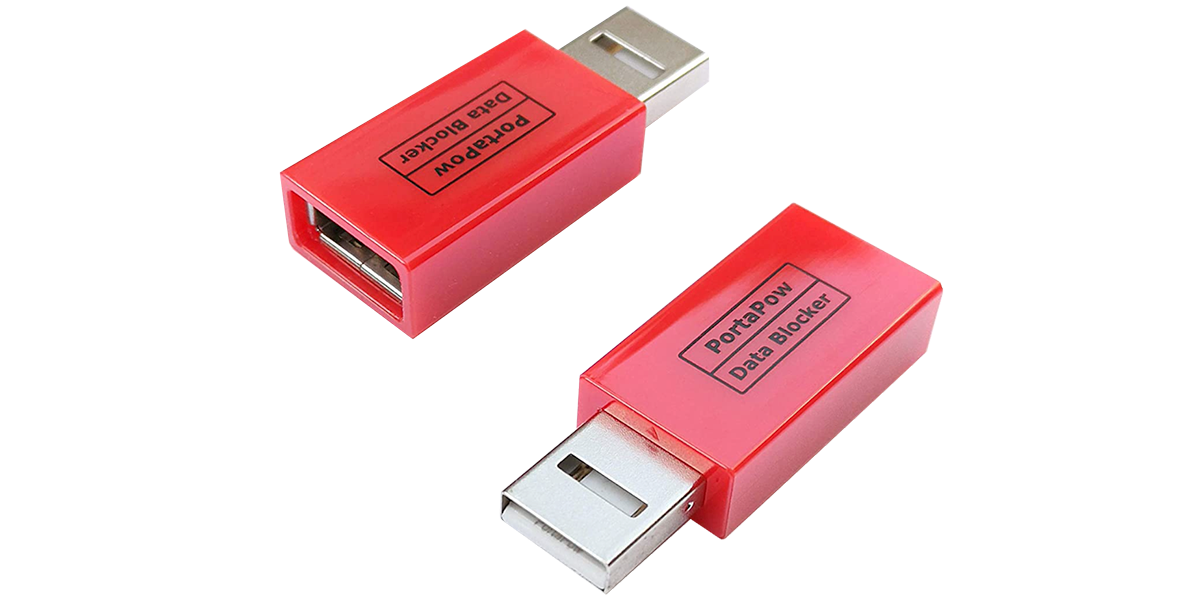
In preparing for a business trip to Boston in the coming weeks I realized a serious cybersecurity vulnerability that is becoming more common at airports, coffee shops, and other locations people tend to congregate and charge their phones and computers. And lucky you, I’ve never discussed it before.
The vulnerability is often called juice jacking, and works like this:
- The potential victim is running low on power for their electronic device, and is in need of finding a charging port. These are typically USB A ports found at or near an AC power outlet.
- Unbeknown to the potential victim, the USB charging port has been modified such that it pulls data from the device while it is charging the device.
- So in the process of charging, all of your data stored on the device is being sent to the criminal over the USB cable.
How This Works
The USB A connector typically used as a charging port has four wires. Two are for power, and two are for data. The criminal only has to route the two data wires to their own device (wired or wireless), and the victim is none the wiser.
The situation with juice jacking has become prevalent enough that the Los Angeles District Attorney issued a travel advisor in 2019 warning travelers about the threat.
How To Take Action
There are several options to effectively prevent being juice jacked:
- Use your own USB power adapter to plug into an AC outlet, and then use a USB cable to connect the power adapter and your device.
- Use a small hand-held charging battery with a USB cable connecting it to your device.
- Use a USB Data Blocker plugged into the USB charging port, with a USB cable to connect between the Data Blocker and your device.
USB Data Blocker
A USB data blocker is not much more than a device that looks something like a USB flash drive, that has a male end to plug into a USB charging port, a female end into which you plug your USB cable, which then connects to your device.
The USB data blocker does its work by only having the two power wires, while missing the two data wires.This makes it impossible for any data to be pulled from your device.
Data blockers typically sell for under $10 each and may be purchased from Amazon and many other electronics retailers.
And They Lived Happily Ever After
So splurge on the $10, order yourself a USB data blocker, and keep it in your pocket for the next time you need to charge your device outside of your home.



